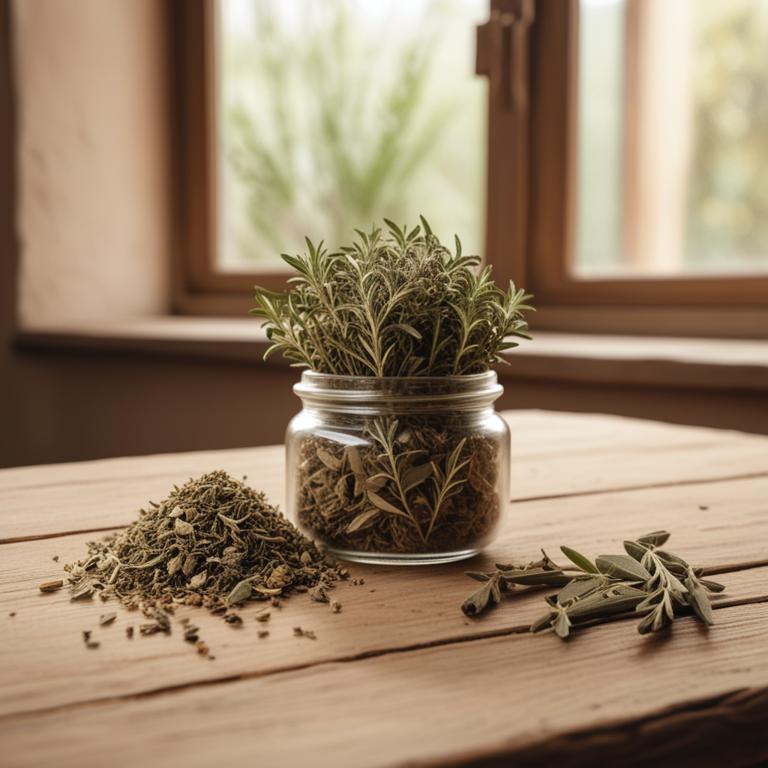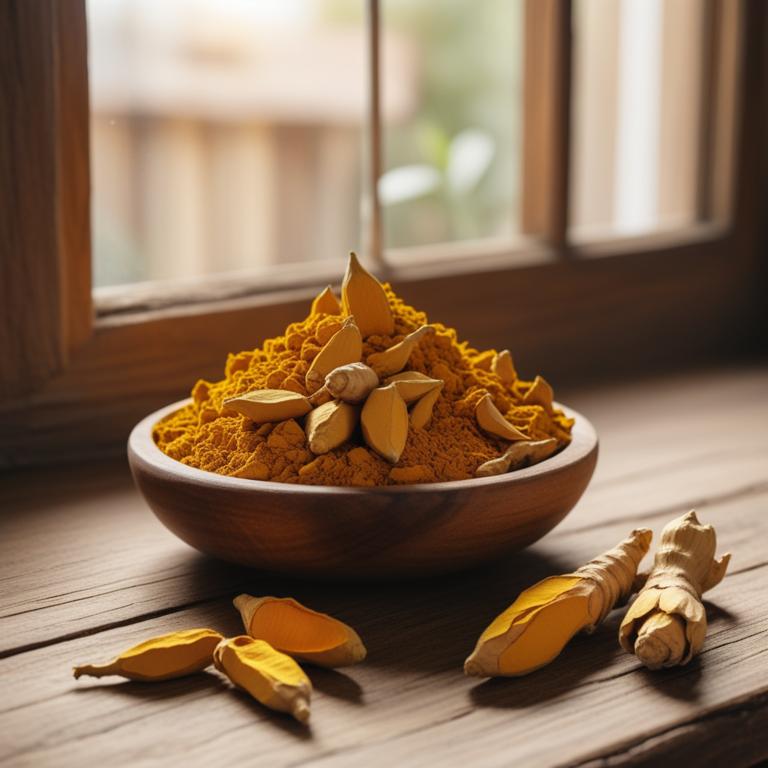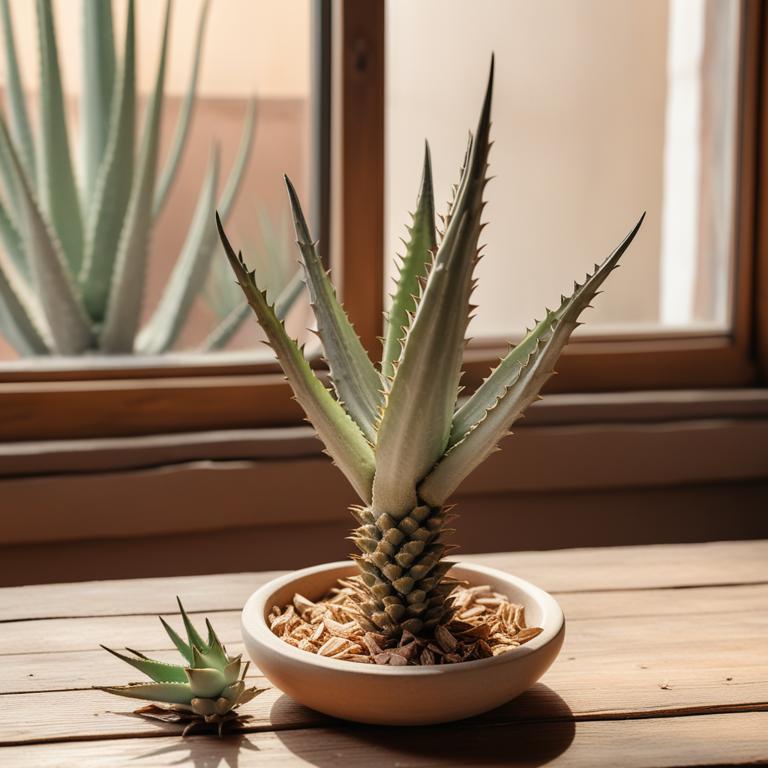Updated: Dec 1, 2024
Identifying and Treating White Patches in Mouth: Causes, Herbal Remedies, and Preparations

White patches on the mouth, also known as oral leukoplakia, are abnormal white patches or lesions that can appear on the tongue, gums, or the inside of the cheeks.
They can make eating and speaking uncomfortable, and in some cases, they may even bleed or become painful. These patches are often a sign of an underlying issue, such as a vitamin deficiency, a fungal infection, or prolonged use of tobacco or other irritants. The exact cause of white patches in the mouth can be difficult to pinpoint, but it's often linked to a combination of factors, including poor oral hygiene, smoking, excessive alcohol consumption, and a diet lacking essential nutrients. Fortunately, there are some natural remedies that can help soothe and heal white patches in the mouth.
Certain herbs, such as neem, turmeric, and aloe vera, have anti-inflammatory and antibacterial properties that can help combat infection and promote healing. You can prepare these herbs as teas by steeping them in hot water, or use them as mouthwashes by mixing them with water and swishing the solution around your mouth before spitting it out. Aloe vera, in particular, is known for its soothing properties and can be applied directly to the affected area using a cotton swab. Turmeric, on the other hand, can be mixed with water to create a paste that can be applied to the patches. Neem, meanwhile, can be made into a mouthwash by steeping its leaves in hot water.
Drinking herbal teas, such as those made from neem, turmeric, and ginger, can also help promote healing and overall oral health.
Table of Contents
- What causes the presence of white patches in the mouth?
- What advantages result from using herbs for white patches in month?
- What are the key medical herbs for white patches in mouth?
- Which herbal concoctions are most commonly used to treat white patches in mouth?
- Which herbs should be avoided if you have white patches in month?
- FAQ
What causes the presence of white patches in the mouth?
The main causes of white patches in the mouth are several conditions that can affect anyone.
One of these causes is Vitiligo, a condition where the skin loses its pigment, causing white patches to appear. In the mouth, Vitiligo can cause white spots or patches on the tongue, gums, or the inside of the cheeks. Another cause is Leukoplakia, a condition that causes white patches to form on the tongue, gums, or the inside of the cheeks. It's usually caused by smoking or using tobacco products, and it can be a sign of an early stage of cancer. Lichen Planus is another condition that can cause white patches in the mouth. It's an autoimmune disease that causes inflammation and damage to the skin and mucous membranes.
In the mouth, it can cause lacy white patches on the tongue, gums, or the inside of the cheeks. Psoriasis is a skin condition that can also affect the mouth, causing white patches or red patches with silvery scales. It's caused by an overactive immune system that causes inflammation and damage to the skin. Finally, Pityriasis Alba is a condition that causes white patches on the skin, often on the face. While it's not typically considered a mouth condition, it can sometimes appear on the skin inside the mouth, causing white patches to appear on the tongue, gums, or the inside of the cheeks. It's usually caused by dry skin or eczema. It's worth noting that these conditions can have different symptoms and can affect different people in different ways.
If you're experiencing white patches in your mouth, it's always best to consult a doctor or a dentist to determine the cause and get proper treatment.
What advantages result from using herbs for white patches in month?
Using herbs for white patches on the mouth can be a great alternative to medical treatments.
These herbs have been used for centuries to help soothe and heal the affected areas. One of the main benefits is that they can reduce inflammation and pain, making it easier to eat and speak.
They can also help to prevent further infection, promoting faster healing of the patches. Another advantage is that herbs are often gentler on the skin and mouth than some medical treatments, which can be harsh and cause side effects. Additionally, herbs can help to restore the natural color and texture of the affected areas, leaving you with a more even and healthy-looking mouth.
Some herbs can also help to boost the immune system, making you less likely to get white patches in the future.
What are the key medical herbs for white patches in mouth?
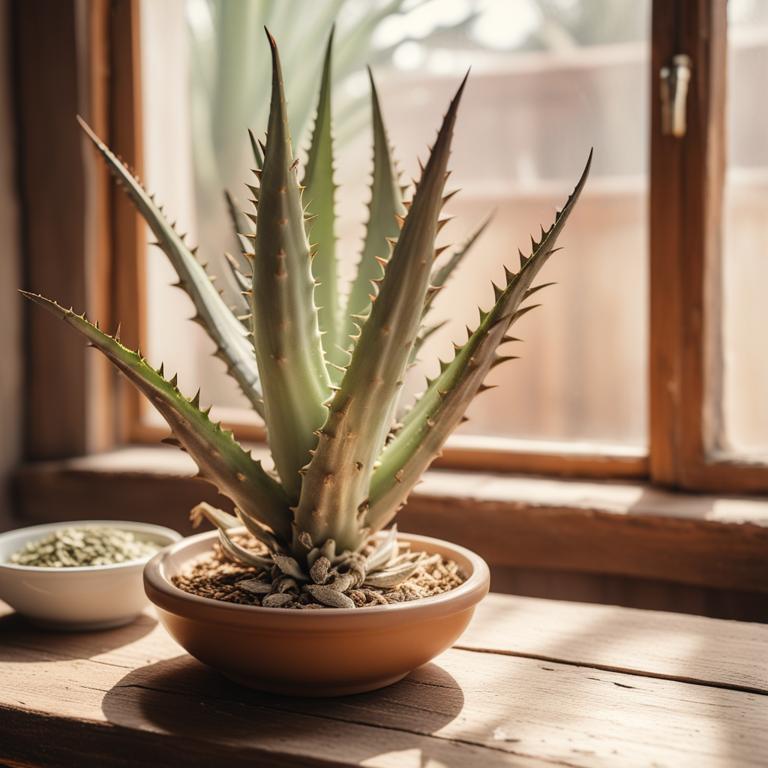
If you're dealing with white patches on your mouth, there are some herbs that might help.
Aloe barbadensis, also known as aloe vera, is known for its soothing and healing properties. It can help reduce inflammation and prevent infections, which can cause white patches to appear. Another herb that might be helpful is Zingiber officinale, or ginger. It has antibacterial and anti-inflammatory properties, which can help fight off infections and reduce swelling. Ginger can also help stimulate blood flow to the affected area, promoting healing. Cinchona officinalis, or cinchona, contains quinine, a compound that has antiseptic and anti-inflammatory properties.
It can help reduce swelling and prevent infections, making it a good choice for treating white patches. Silybum marianum, also known as milk thistle, has been used to treat a variety of health issues, including infections. It has anti-inflammatory properties that can help reduce swelling and promote healing. Echinacea purpurea, or coneflower, is another herb that might help. It has immune-boosting properties, which can help your body fight off infections and promote healing. It also has anti-inflammatory properties that can help reduce swelling. These herbs can be consumed as teas, capsules, or applied topically to the affected area.
However, it's essential to consult with a healthcare professional before using any new herbal remedies, especially if you have any underlying health conditions.
Which herbal concoctions are most commonly used to treat white patches in mouth?
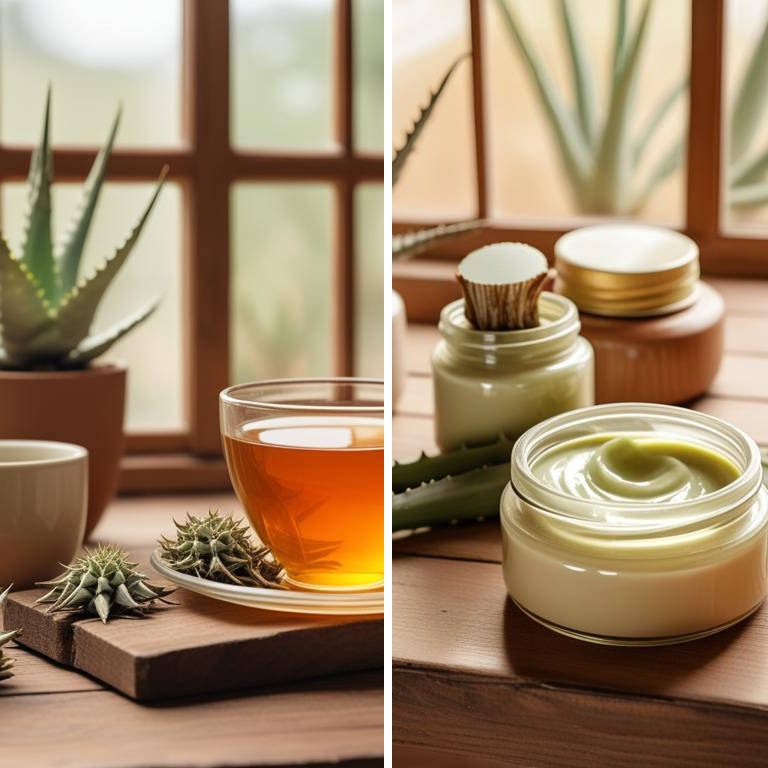
If you're experiencing white patches on your mouth, there are some herbal preparations that can help.
A decoction of turmeric and neem can be a good option. To make a decoction, boil these herbs in water and then let them steep. This helps to extract their active compounds, which can help to reduce inflammation and fight off infections that cause white patches. You can also try an infusion of aloe vera. To make an infusion, steep aloe vera leaves in water and then strain the mixture. Aloe vera has anti-inflammatory properties that can help to soothe and calm the affected area.
A salve made from tea tree oil and neem oil can be applied topically to the white patches. Salves are thick pastes that are applied directly to the skin, and they can provide a barrier against infection. Tea tree oil has antibacterial properties that can help to fight off the infection, while neem oil can help to reduce inflammation. Drinking a tea made from licorice root and slippery elm can also be beneficial. These herbs have anti-inflammatory and soothing properties that can help to calm the affected area and reduce swelling. Finally, applying a cream made from aloe vera and tea tree oil can help to soothe and calm the white patches.
These ingredients can help to reduce inflammation and fight off infections, making them a good option for treating white patches in the mouth.
Additional Resources:
Which herbs should be avoided if you have white patches in month?
If you have white patches in your mouth, it's a sign of oral thrush, a fungal infection.
When it comes to treating or managing this condition, certain herbs can make things worse. For example, Hydrastis canadensis, also known as goldenseal, is known to stimulate the immune system, but it can also make fungal infections more severe. Similarly, Ephedra sinica, or Chinese ephedra, can increase blood pressure and heart rate, which may not be suitable for someone with oral thrush.
Another herb to be cautious with is Glycyrrhiza glabra, or licorice root, as it can alter the balance of gut bacteria and potentially worsen fungal infections. Artemisia absinthium, or wormwood, has antimicrobial properties, but it can also be toxic in large quantities and may interact with medications. Lastly, Sanguinaria canadensis, or bloodroot, is known for its anti-inflammatory properties, but it can also cause allergic reactions and may exacerbate oral thrush.
If you're experiencing white patches in your mouth, it's best to consult with a healthcare professional before using any herbal remedies.
FAQ
Are there any specific herbs that can prevent white patches in month?
Some herbs like aloe vera and turmeric may help prevent white patches on the mouth.
Aloe vera's soothing properties can reduce inflammation, while turmeric's curcumin can fight off infection.
These herbs can be consumed as tea or applied topically to affected areas, but their effectiveness can vary from person to person.
Is it safe to use herbal remedies for white patches in month during pregnancy?
Using herbal remedies for white patches during pregnancy can be a concern.
Some herbs might not be safe for the baby, and their effects on the mother's health are also unknown.
If you're considering herbal remedies, it's best to talk to someone who knows about safe options during pregnancy.
Are there any herbs that can reduce the frequency of white patches in month?
Some people find that certain herbs, like aloe vera and turmeric, may help reduce the frequency of white patches in the mouth. Aloe vera has anti-inflammatory properties, while turmeric contains a compound called curcumin, which has been shown to have antifungal properties that may help combat the underlying cause of oral thrush.
Related Articles
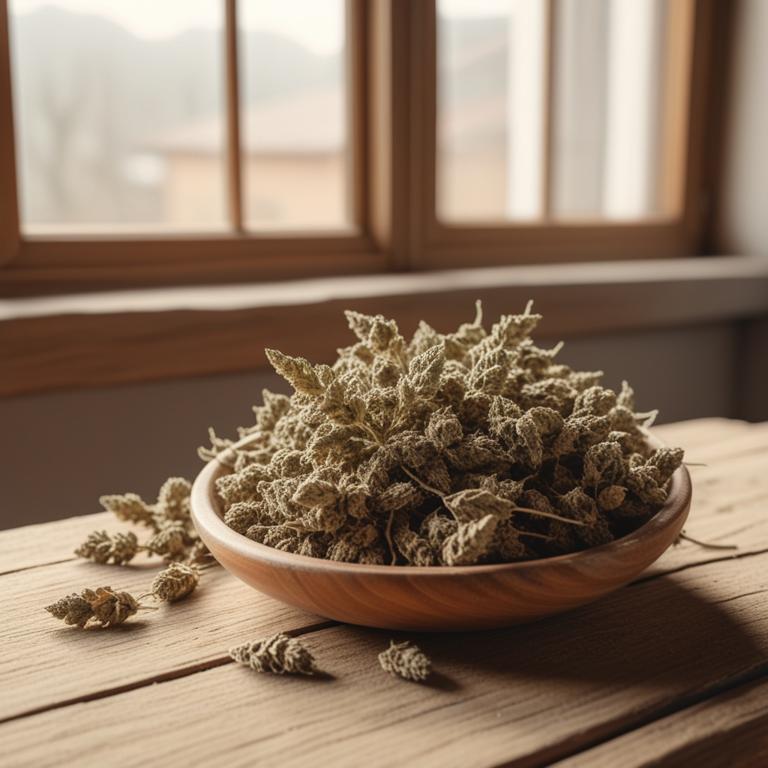
The Ultimate Guide to Itchy Skin Causes, Medicinal Herbs, and Treatments
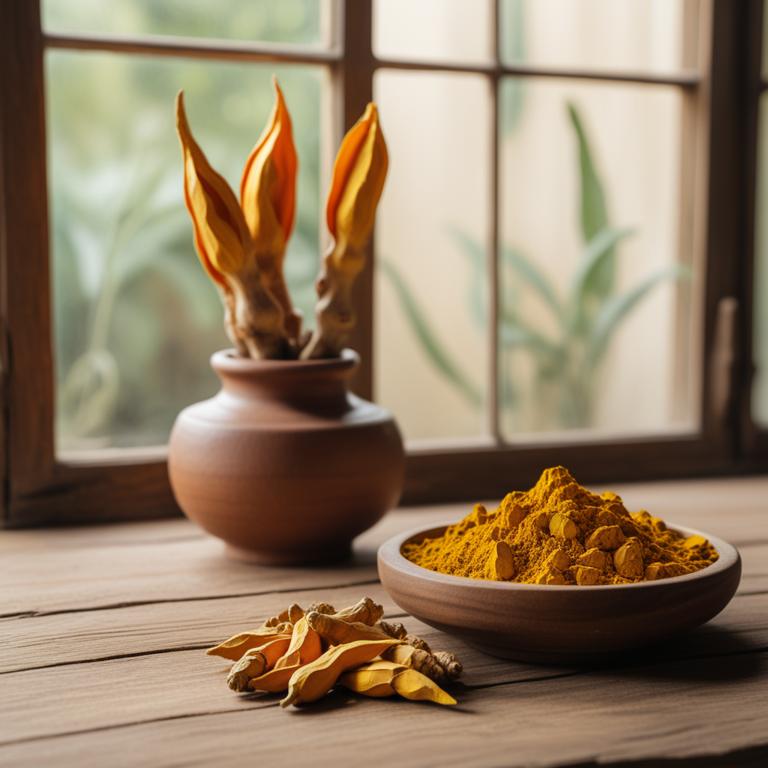
Bleeding Gums: Causes, Medicinal Herbs, and Natural Remedies for Relief

Natural Remedies for Foot Odor Using Medicinal Herbs

Glowing Skin: Causes, Medicinal Herbs, and Effective Herbal Remedies
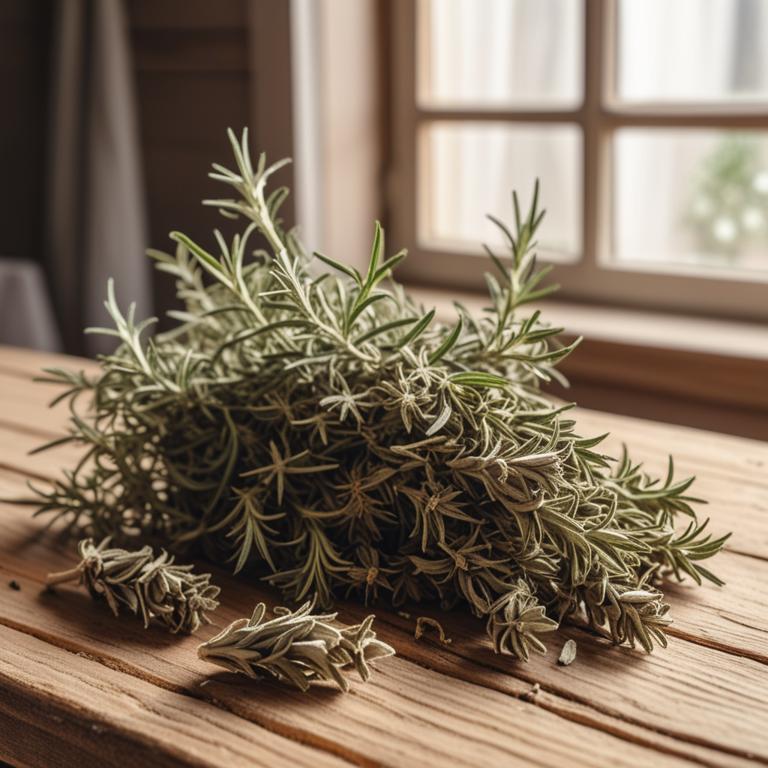
Dry Hair: Causes, Medicinal Herbs, and Herbal Preparations for Healthy Locks
